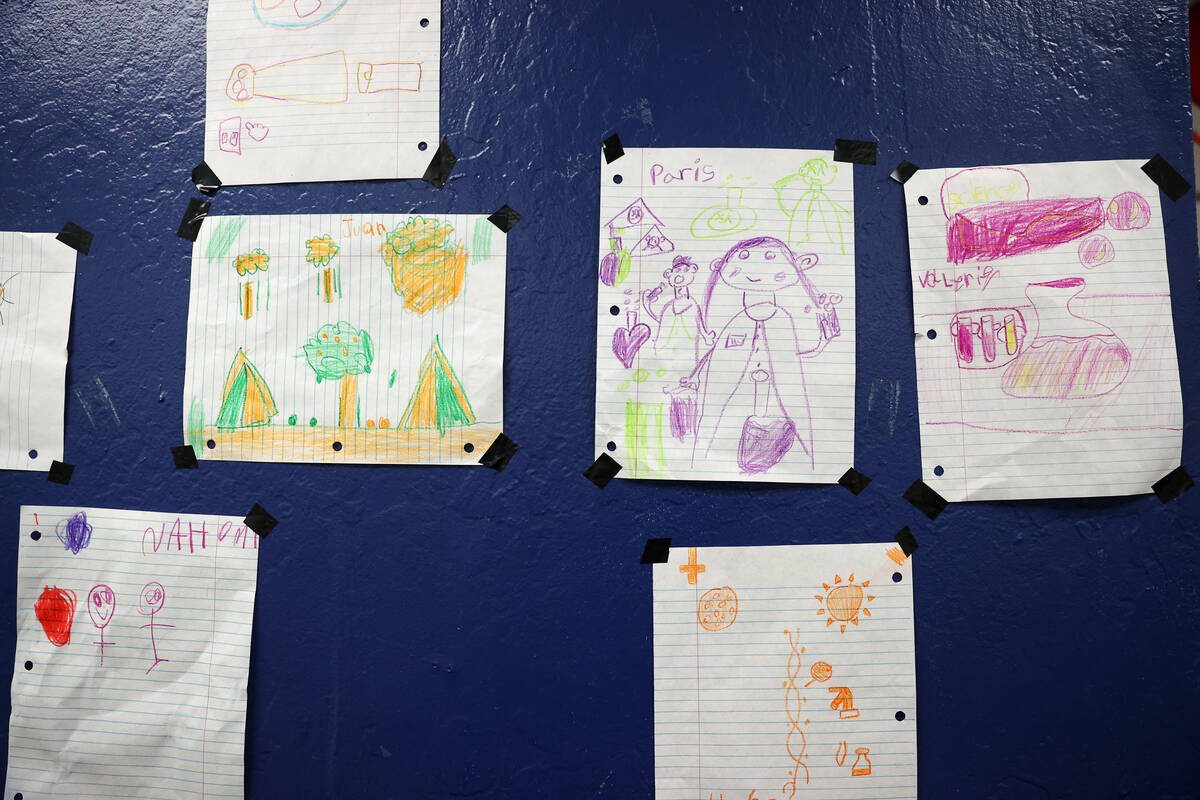Boys and Girls Clubs of Southern Nevada is using its after-school programs to help children in a new way: group therapy.
Group therapy was introduced to clubs across the Las Vegas Valley last month as part of a new program to guide children and their families towards healthier emotional wellbeing. The non-profit organization has also been offering individual and family counseling for around two years.
Group therapy focuses on developing social, emotional learning skills to prevent future incidents of mental health symptoms, said Alma Spears, senior vice president of family and counseling services for the nonprofit. This includes how to deal with anger, how to recognize emotional triggers, and how to prevent thoughts from turning into bad behavior.
Children are grouped by age in clubs throughout the valley and group therapy can serve as a screen for further individual advice.
The clubs “supported” each other in advisory services about two years ago, said CEO Andy Bischel. Looking for a way to take advantage of Spears’ newly acquired Masters degree, leadership found that the Department of Health and Human Services wanted to support more psychiatric services for young people that can help solve the common transportation problem.
“Transportation is the biggest challenge for a working family; How do you bring the child to the appointment on a regular basis? ”Said Bischel. “You can get it maybe once or twice, but it’s the consistency that really matters. If we call in the counselors, we eliminate that because we have the kids in the clubs. “
For families with Medicaid or non-insurance, there are no separate costs for any of the therapy levels. Privately insured families are not yet accepted, but the organization plans to add this as it expands the services in the next few years.
The services could help fill a void that young people see for themselves. A survey of 13- to 24-year-olds in Las Vegas in spring 2021 found that cost and a lack of awareness of where to turn are the top barriers to accessing mental health resources. The study by the Born This Way Foundation and the Benenson Strategy Group found that 60 percent of teenagers surveyed felt anxious in the past month, compared to 46 percent in 2019.
Bischel sees the therapy offers as a preventive measure to counteract these feelings. While many of the children may not need the services, reaching the most vulnerable will set them on the path to graduation and then to a positive future thereafter.
“How do we bring them to resilience?” He said. “What usually happens when you are not resilient (is) you succumb to drugs, alcohol, criminal activity, and such things that can completely upset your entire life. So it was really about how we can proactively keep children out of the safety net or the criminal system in the future. “
“It is not a luxury”
The added services have made some Boys and Girls Club families feel like a deal that “was almost too good to be true,” Spears said.
“I think change is very different and scary for most families,” she said. “But I just want them to know that it’s not a luxury, it’s something they have access to. And just let them know that if they trust the process, they will see the change. “
The advice in the clubs helped Marcela Corrales and her 11-year-old son. Corrales first put her son in the club’s one-on-one counseling in 2019 when he exhibited aggressive behavior and depression. Corrales wanted to break a pattern of aggression in her family, so she took him to Spears and noticed changes after the second session.
“He started coming home after the sessions and talking about what he had learned and practicing,” Corrales said of a Spanish translator.
The two also attended a family counseling session, learned to open up to one another and to deal with phases of anger. Her son said he was relieved to know that people were helping him with his problems. Your family now meditates together and is better able to solve problems in difficult situations.
“When I got angry, I would count from one to ten and then inhale and exhale and then I would feel a lot calmer,” he said.
McKenna Ross is a corps member of Report for America, a national utility that places journalists in local newsrooms. Contact her at mross@reviewjournal.com. Follow @mckenna_ross_ on Twitter.













